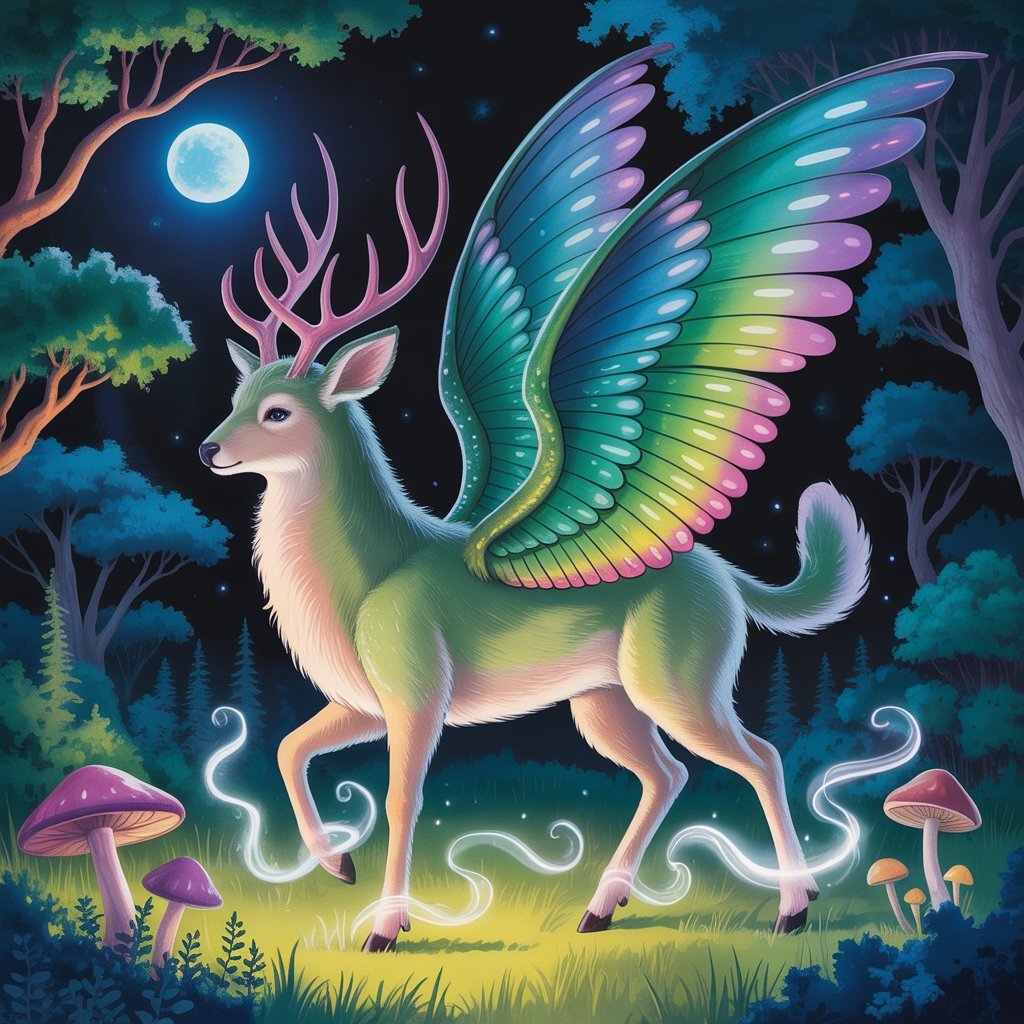Pernithia Galnith
What Is Pernithia Galnith and Why Does It Matter?
In this modern world overflowing with screens, machines, and noise, it’s the whispers of old forests that draw us back to something ancient. That’s exactly where pernithia galnith lives—not on a map, but in the soul of the wilderness. Believers call it a guardian, skeptics call it a myth, and storytellers call it a muse. Yet, whatever label you give, one thing is clear—this entity is more than folklore. It’s a feeling.
The hype around pernithia galnith isn’t just about mystery—it’s about meaning.
Understanding the Soul of Pernithia Galnith
Some describe it as a mossy, deer-like guardian; others say it’s a presence rather than a being. Think of it not as a creature but as an experience—a blend of wind through branches, the hush of leaves, the gentle resilience of moss. It is neither male nor female, neither spirit nor beast, but something between. Pernithia galnith represents harmony: nature’s way of reminding us that balance isn’t just poetic—it’s essential.
Where the Word “Pernithia Galnith” Comes From
Ever wondered why this name sounds like something out of an ancient elvish scroll? There’s no clear dictionary definition. But dig a little deeper, and you’ll find linguistic hints. Pernithia could stem from “perennial,” alluding to eternal growth. Galnith—possibly a fabricated suffix—adds an ethereal, almost sacred flavor. The combined effect? A name that feels timeless, like it’s always existed in the rustle of trees and quiet corners of legends.
Where It’s Said to Roam
Tales place pernithia galnith deep within undisturbed forests—where roots have known centuries, and moss blankets the earth like memory. The Pacific Northwest, Black Forest of Germany, even the cloud forests of Costa Rica—these places have all been mentioned in whispered sightings. Always secluded. Always silent.
Interestingly, it’s often “seen” not through eyes but through feeling—a sudden calmness, a tug at the intuition, a breath of forgotten awe.
Legends That Brought It to Life
Celtic druids, Nordic mystics, Amazonian shamans—all speak, in their own ways, of something like pernithia galnith. These aren’t just bedtime stories. They’re oral history—reverent, serious, deeply rooted in rituals. From stone circles to sacred groves, the figure appears again and again, described in different words, but always with the same essence: protector, healer, balance-keeper.
Science or Symbol: What Do We Believe?
Some modern biologists entertain a playful theory: that pernithia galnith might be symbolic of symbiotic forest organisms. Lichens, mycorrhizal fungi, decaying wood teeming with invisible life—all woven into one poetic figure. While no microscope has ever captured it, the idea itself bridges science and story, which is perhaps the most human thing of all.
The Healing Powers of Pernithia Galnith
Many say that its presence alone can soothe panic, ease insomnia, and ground a wandering mind. According to spiritualists, its energy helps restore balance not just in the body but also in relationships, ecosystems, and even dreams. This entity, they claim, carries the energy of restoration—subtle yet powerful.
How It’s Celebrated in Ritual and Medicine
In some remote communities, rituals dedicated to pernithia galnith are still performed during solstices. These rituals involve bathing in spring water, wrapping stones in moss, and singing in forgotten tongues. Herbalists, too, whisper its name when blending teas from forest herbs—believing its energy blesses their brew.
Interestingly, none of this is commercial. You won’t find “Pernithia Galnith Oil” on a shelf. It’s sacred, not branded.
The Four Elements It Embodies
Only this section will contain bullet points, as requested.
- Earth: It walks through soil, covered in moss and rooted in timelessness.
- Air: Whispers are carried in the breeze, felt more than heard.
- Fire: Rare but real, seen during ceremonial bonfires as flickers shaped like deer.
- Water: Associated with mist, rain, and sacred springs.
Its strength lies not in one force—but in balance between all.
What It Means Spiritually
Symbolically, pernithia galnith invites you to slow down, breathe, and return to simplicity. It asks nothing from you but your presence. In a world pushing productivity, this entity gently pulls you toward pause.
Its message? You’re part of nature—not above it.
A Glimpse Into Its Appearance
Most descriptions align on key visuals: a soft, glowing being with bark-textured fur, tree-branch antlers, and amber-lit eyes. Some say it has hooves like roots, and leaves growing from its back. Others say you won’t even see it unless your heart’s quiet enough to notice.
The point isn’t visibility. It’s a connection.
Debunking the Myth – Or Embracing It
Of course, skeptics roll their eyes. No photos. No proof. Just stories. But those who’ve felt its presence say the absence of evidence doesn’t matter. It’s not about belief. It’s about experience. A sudden peace. A spark of awe. A tear for no reason while sitting beside an old oak.
Maybe that’s the point.
How It Inspires Art, Books, and Music
Artists have painted pernithia galnith as a forest muse—emerging from fog, vanishing into bark. Writers, too, embed its spirit in fantasy novels and nature essays. Indie musicians compose ambient tracks titled “Galnith Rising” and “Echoes of Moss”—using flutes, water drums, and wind-recorded samples.
The muse lives wherever reverence for nature lives.
Pernithia Galnith in Popular Culture
Bullet points below represent media mentions.
- “The Forest Remembers” – A short animated film featuring a character inspired by this entity.
- “Echoes of Galnithia” – An ambient forest album using sounds recorded from natural reserves.
- “The Grove’s Whisper” – A graphic novella with spiritual undertones drawn from the legend.
While not mainstream, it’s quietly taking root in indie spaces.
Religious and Pagan Interpretations
For nature-based faiths, especially Wiccan and druidic practices, pernithia galnith represents the sacred spirit of the forest. Altars are built with moss, stones, and feathers. Prayers aren’t spoken—they’re felt. No idols. Just intention.
In these circles, it’s not “believed in” like a god. It’s acknowledged like a relative.
Creatures It’s Compared To
Similar beings across the world include:
- Kodama (Japan): Tree spirits
- Dryads (Greece): Nymphs of oak trees
- Green Man (Celtic): The wild, leafy god of nature
But pernithia galnith is uniquely whole—representing balance, not just growth or protection.
Why Some Call It a Hoax
There are no sightings in news reports, no scientific names in biological indexes. To critics, it’s a romanticized myth clung to by dreamers. And maybe they’re right.
But ask any forest-walker, herbalist, or solitary hiker—and they’ll tell you: real isn’t always visible.
Is It Alien, Spirit, or Something Else?
Some fringe thinkers propose it’s not of this Earth—maybe an ancient consciousness or energy being. But for most, that theory complicates what is beautifully simple. Why call it alien when it feels more home than anything else?
Why Environmentalists Reference It
In climate rallies and rewilding efforts, images of pernithia galnith are drawn on signs. It’s become a symbol—not of panic, but of peace. A reminder that forests aren’t just lungs of the planet. They’re the heart.
Psychological View: A Mirror of the Subconscious
Carl Jung would’ve loved this. Some psychologists believe perinthia galnith is an archetype—a universal symbol rising from our collective subconscious. Not fiction, but internal truth—manifested externally.
In simpler terms: it’s the forest inside you, reminding you to return.
How It’s Invoked in Modern Rituals
From forest meditation circles to moonlit sound baths, the entity is often “invited” through:
- Moss circles
- Feather offerings
- Spring water cleansing
- Wordless chants
There’s no script—only sincerity.
Language and Ancient Sounds
One rare tradition involves chanting “Per-na-thee-a Gal-nith” in deep rhythmic tones. Believers say this chant realigns the heart with Earth’s frequency. Whether it works scientifically or not, the peace it brings speaks volumes.
Festivals and Celebrations
Each year, eco-spiritualists quietly celebrate “Galnith Night”—an evening of:
- Tree planting
- Fire circles
- Forest music rituals
- And shared silence under the stars
No social media. No live streams. Just presence.
Its New Role in New Age Culture
From moss terrariums in healing shops to guided meditations invoking its calm, pernithia galnith has tiptoed into the New Age scene. But rather than being exploited commercially, it continues to feel organic, sacred, and soul-led.
How to Experience Pernithia Galnith
You won’t find it on a trail map or in a documentary. But you might find it:
- At twilight, where sunbeams fade into leaf shadows
- Sitting quietly on moss, hands on soil
- When your thoughts finally stop spinning
It’s not what you look for. It’s what you allow.
Voices from the Forest: Real Encounters
“I didn’t see anything, but I felt everything.”
— Zara, Forest Yoga Teacher
“No camera could capture it. But my heart did.”
— Emilio, Sound Healer
Experts Weigh In
Folklorists, spiritual coaches, even eco-psychologists agree: myth or not, pernithia galnith brings real emotional healing. It reintroduces humans to humility. And in today’s world, that’s more needed than proof.
Also read more about pernithia galnith
Final Thought: Does It Matter If It’s Real?
Maybe pernithia galnith never walked. Maybe it never will.
But if it brings us closer to ourselves, to each other, and to nature—then it’s real where it counts.








